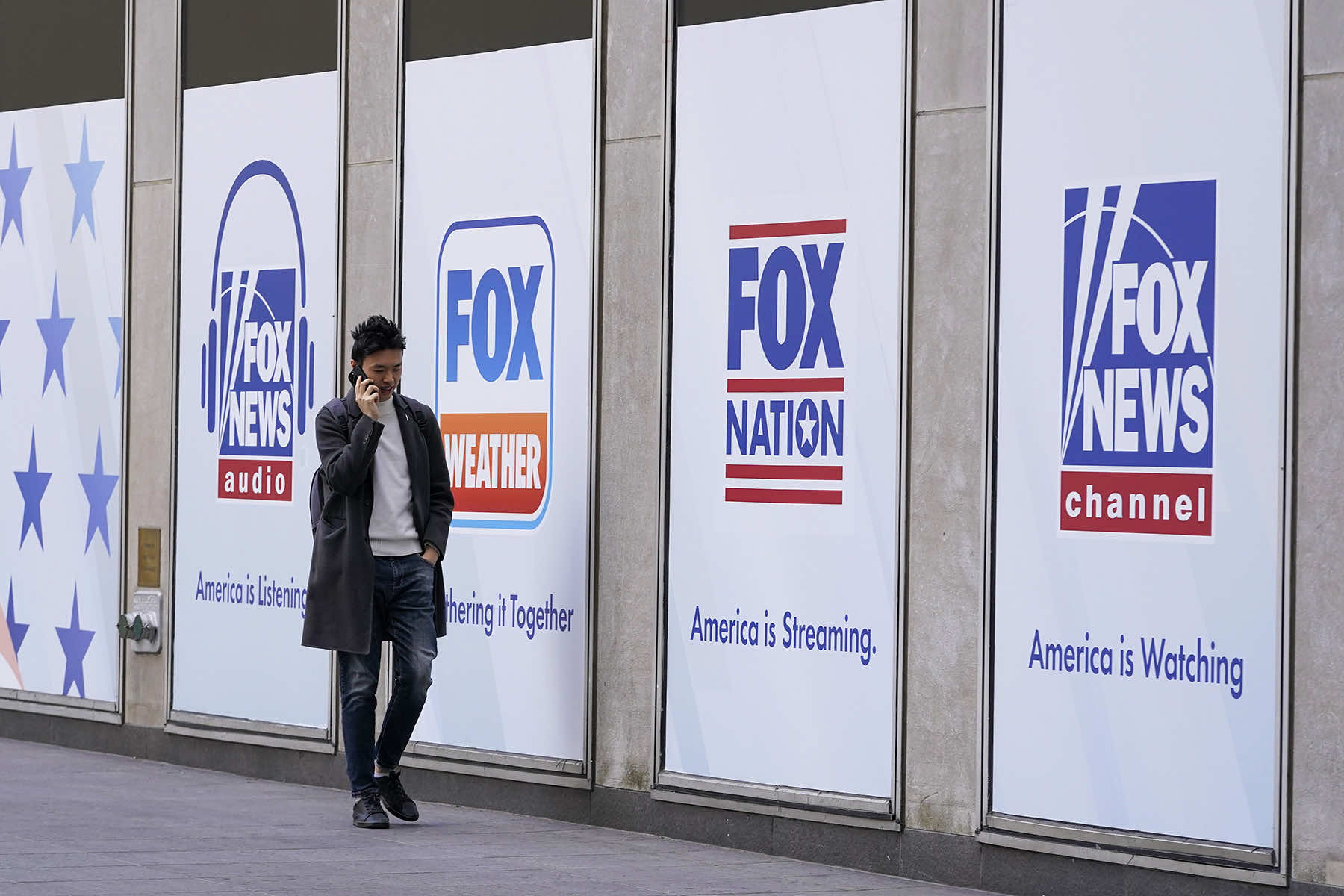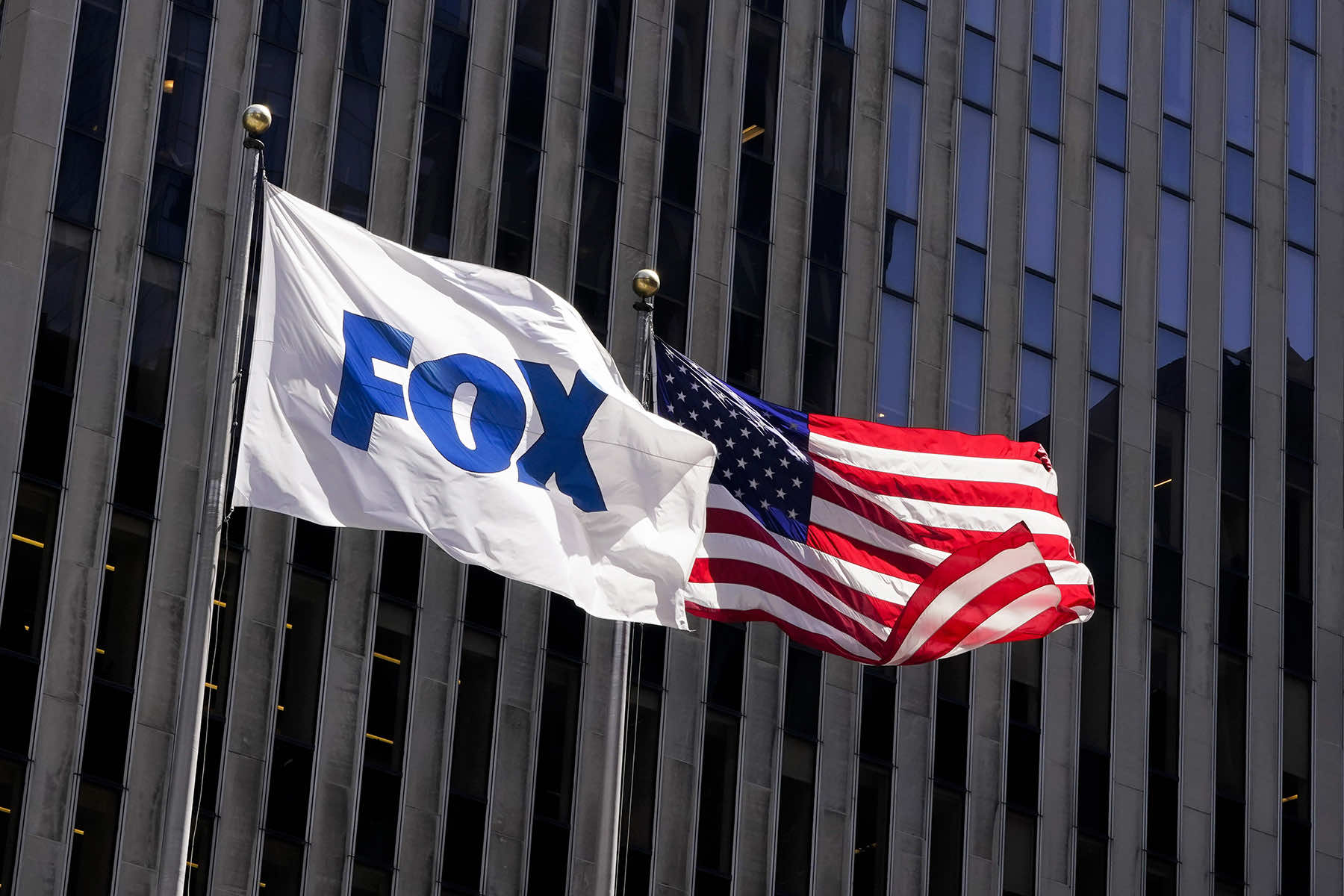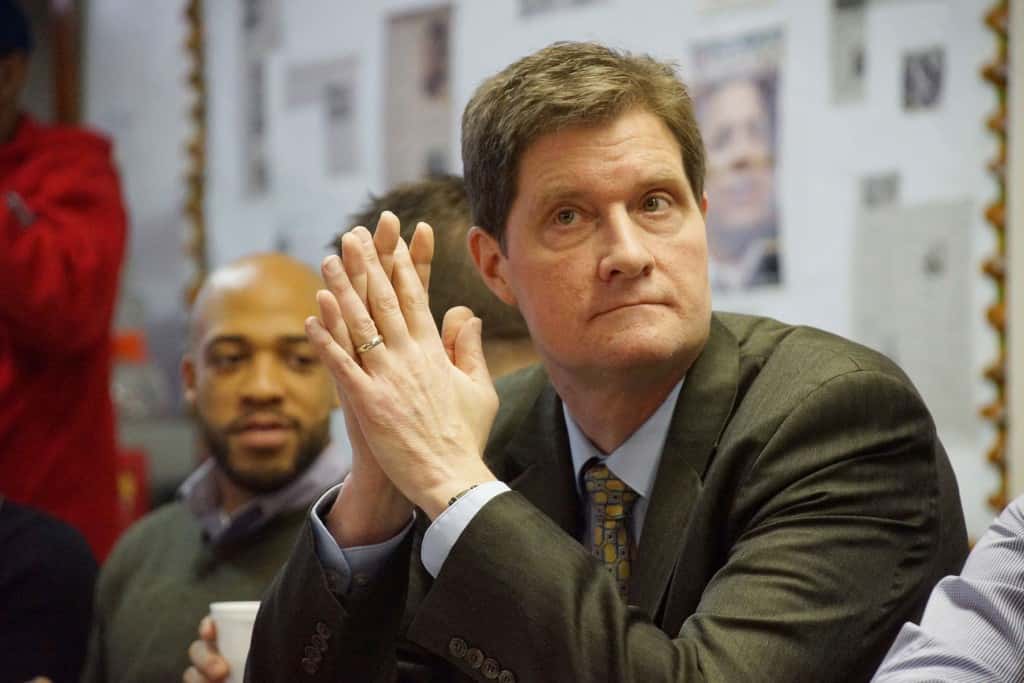
Recovering from three years of pandemic, our middle class staggered by 42 years of Reagan’s neoliberalism, rejecting the efforts of Republican neofascists in the mold of Trump, America appears poised on the edge of an egalitarian renaissance.
America and much of the rest of the world are awakening. The bitter and angry haters, homophobes, bigots, and misogynists had their four years in the sun with Trump as president, and now grow increasingly loud and outraged as they are pushed farther and farther to the margins of society.
A new day appears to be upon us. If only our press does not bury it in a flood of excuses and distractions. In a similar decade of crisis and renewal, the third year of George Washington’s presidency, 1791, our Constitution was amended to prevent the government from legislating or regulating the news.
Four years later, according to 19th century historian Thomas Carlyle, British conservative Edmund Burke defined the press as “the fourth estate of the realm.” He meant it as a slur; Burke was no egalitarian and in his opinion the press of his day, enthralled by the American revolutionaries’ example, too often tended in that direction.
In the roughly three centuries since the rise of American democracy and the British royal family’s largely surrendering sovereignty to Parliament and the people who frequently elect them at a local level, a free and independent press has played a vital role in maintaining and preserving the robust and adversarial political system necessary for a functioning republic.
The author of the Declaration of Independence and what was arguably the first draft of the Bill of Rights (in correspondence with James Madison), Thomas Jefferson wrote:
“The basis of our government being the opinion of the people, the very first object should be to keep that right; and were it left to me to decide, whether we should have a government without newspapers, or newspapers without a government, I should not hesitate a moment to prefer the latter.”
And yet just this week, as President Biden was speaking at a celebration honoring Juneteenth, one of America’s most influential media outlets ran a chyron across the bottom of the TV screen with a photo of his face above it, seen live in millions of American homes that said:
WANNABE DICTATOR SPEAKS AT THE WHITE HOUSE AFTER HAVING HIS POLITICAL RIVAL ARRESTED.
This is not an even remotely a depiction of reality, and reporting reality is the job of news. It is, instead, a classic example of propaganda.
Propaganda can destroy nations, societies, cultures, and even change the behavior of specific groups of individuals.
America had the worst rate of COVID deaths of all developed nations in the world, for example, and much of it can be directly attributed to that same news outlet promoting lies and conspiracy theories that led gullible citizens to distrust their government’s advice about how to avoid exposure.
It similarly promoted mendacious propaganda that almost led to the end of American democracy. As Australian billionaire James Murdoch — whose brother runs Fox “News” — told the Financial Times:
“The sacking of the Capitol is proof positive that what we thought was dangerous is indeed very much so. Those outlets that propagate lies to their audience have unleashed insidious and uncontrollable forces that will be with us for years.”
His father, 92-year-old billionaire oligarch Rupert Murdoch, began his rightwing propaganda operation in Australia, throwing that nation’s political system so deeply into crisis that former Prime Minister Keven Rudd was moved to write an op-ed for the nation’s largest independent newspaper, The Sydney Morning Herald.
In it, he chronicles how “Australian politics has become vicious, toxic and unstable.”
Rudd then asked, “The core question is why?” and proceeds to answers his own question unambiguously:
“But on top of all the above, while manipulating each of them, has been Rupert Murdoch — the greatest cancer on the Australian democracy. Murdoch is not just a news organization. Murdoch operates as a political party, acting in pursuit of clearly defined commercial interests, in addition to his far-right ideological world view.”
From Australia, Murdoch moved to the UK where he took over numerous newspapers and media outlets, cheerleading for grifter and Trump-wannabee Boris Johnson and his Brexit.
Reagan went around channels to expedite Murdoch’s American citizenship, which let his company legally own US television networks and stations; he now lords over Fox “News,” arguably the second most toxic source of anti-American and white-supremacist propaganda in the English-speaking world.
In the social media arena, Facebook’s owner and CEO, Mark Zuckerberg, oversees what is apparently the largest purveyor of news in the world today, including here in the U.S. Facebook is so powerful and its impact so far-flung that it literally helped cause a mass slaughter, a race-based genocide, in Myanmar/Burma.
Zuckerberg, our country’s richest millennial, had a secret dinner with Donald Trump during the Trump presidency, and held multiple meetings with rightwing politicians, reporters, op-ed writers, and influencers, according to Politico.
I can find no record of him having similar private dinners with either Obama or Biden, nor with any groups of progressive journalists, writers, politicians, or influencers. Numerous sources identify Facebook as one of the major hubs of organizing for rightwing events including January 6th, the rise of Qanon, and the contemporary militia and white supremacist Nazi movements.
His company continues to keep a tightly held secret the algorithm which decides which pages and posts get pushed to readers and which don’t, thus secretly deciding what types of news and opinion are most heavily spread to almost half of Americans at any given moment.
Arguably, their dominance of news dissemination makes Rupert Murdoch and Mark Zuckerberg two of the most powerful men in America.
Another morbidly rich billionaire, Jeff Bezos, owns The Washington Post, although apparently has not personally influenced or interfered with that publication’s reporting. But the potential is certainly there: he who has the gold makes the rules, as the old saying goes.
To compound the confusion about who to trust in the news business, about two decades ago reporters for a Fox station in Florida were explicitly told by station management to alter a story about Monsanto’s recombinant bovine growth hormone to make it friendlier to Monsanto.
They complied multiple times until the alterations reached the point where they believed the story was filled with blatant lies and refused to air it. The Fox station fired them and they sued for wrongful termination. Fox fought the case, arguing that, as their employer, it could tell them what to say on the air, regardless of whether it was truth or a lie, and they had to do it to keep their jobs.
A jury awarded them about a half million dollars, but when Fox appealed the case it was reversed (and Fox then went after the reporters for attorneys’ fees, threatening to bankrupt them). The court explicitly ruled that news organizations can direct their on-air personalities to lie to viewers. So, what do we do about this?
It appears most Americans recognize we are in a crisis, but they are unsure about what to do with it and often latch onto bad ideas that are not well thought out. They want the government to “do something.” Most of them, however, apparently do not know the history of what usually happens in countries that follow that path.
The Pew Research Center published a concerning study showing that fully 48 percent of Americans “say the government should take steps to restrict false information, even if it means losing some freedom to access and publish content…” This is up almost 10 percent from just four years ago.
Similarly, the percentage of Americans, Pew notes, “who say freedom of information should be protected — even if it means some misinformation is published online — has decreased from 58% to 50%.”
Not to mention the striking reality that 45 percent of Americans get much or most of their news from Facebook, which doesn’t even position itself as a news outlet. But censorship is not the solution to our media problem. If anything, the cure would be worse than the disease.
When the Nazis took over Germany in 1933, there were over 4,700 independent newspapers in print representing a wide diversity of opinion. By 1944 only 1,100 remained — with a total circulation of 4.4 million — and every one towed the Nazi line or avoided politics altogether. The 325 official regional Nazi newspapers had a total circulation of 21 million: the German democracy was dead.
This is not a direction America should go. On the other hand, both-sides-ism reporting when one of our two major political parties depends on lies to seize and hold power is not sustainable. This was the great lesson that Chris Licht and CNN discovered when they tried to “balance” their news by inviting more Republican officials, spokespeople, politicians, and candidates on the air.
Both the “left” and the “honest middle” are now almost entirely held by the Democratic Party; the rapidly shrinking GOP has reincarnated itself in the mold of the John Birch Society of the 1950s and almost exclusively represents the interests of white supremacists, homophobes, evangelical Christians, misogynists, the fossil fuel industry, and the morbidly rich.
So, neither censorship nor mandating both-sides-ism will work. What to do? Finland has taken an unique approach to the problem of bias in the news, particularly on social media, by incorporating news and media training into required elementary and secondary school classes.
America could consider the same, although, with the snit we just saw about teaching American history or sex education, it would almost certainly provoke squeals of outrage from rightwingers who depend on lies and hate to perpetuate their movements.
America is in a crisis right now caused, in large part, by dishonest actors across the rightwing spectrum of our media and pushed out via social media’s secret algorithms designed — intentionally or unintentionally — to amplify hate and outrage to make a profit.
Forty percent of Americans do not believe the results of the 2020 election, and nearly half of Republicans think Democrats engage in ritual drinking of children’s blood and worse. There is no corollary or even similar misunderstanding of reality or bizarre set of beliefs among the left or those in the center. This insanity is very much one-sided. You cannot both-sides it.
For the moment, media literacy training in schools across America and requiring transparency in social media’s and search engines’ algorithms — both things Congress would have to undertake to succeed but should have done decades ago — seem like the best approaches we can take to both protect free speech and diminish the impact of lies and propaganda on American political and social life.
A second important step is to enforce the nation’s moribund antitrust laws and break up media conglomerates to bring back locally-owned newspapers, radio stations, and television stations. Congress should bring back media ownership limits to where they were before being gutted in the Telecommunications Act of 1996.
More than half of our nation’s local newspapers are now owned by a handful of hedge funds and venture capitalists, most with a rightwing bias, based out of New York. This is not healthy for the media and certainly not good for our democracy. Finally, the news industry could take a cue from science and medicine.
Because both work in realms where lies or even errors can mean life-or-death, before information is published in journals that claim to be fact-based they’re subject to rigorous examination by “peer review.”
And, as we saw on January 6, news can also be a life-or-death affair, and the survival of American democracy is no less important than newly developed drugs or medical procedures being efficacious.
Major media outlets generally already do the equivalent of this sort of rigor with internal fact-checkers and layers of editors who require multiple sources to verify stories or clearly label unverifiable information, leaks, or claims as such.
There’s no equivalent of the certification of “peer review” in media that is widely read or seen by the public, however: developing a term to describe this, a brand, and then offering that “Good Newskeeping Seal” to media outlets that subscribe to it could at least help news consumers know who’s most likely to be trustworthy and who’s most likely to be lying or repeating mis- or mal-information.
The Society of Professional Journalists, for example, has over 300 chapters and 6,000 members across the nation; they could be the sort of organization that may want to take on this sort of project. There are others, including independent news organizations like ProPublica, that might logically champion such an effort.
Democracy is based on the will of the people, and the quality of the decision making of the people is a function of the information to which citizens have access. Using the powers of example, transparency, and independence, we may be able to rescue our nation’s currently polluted streams of information and news.
It will take time and effort, but the reward — a functioning democratic republic — will be well worth it.
Mary Altaffer (AP)
© Thom Hartmann, used with permission. Originally published on The Hartmann Report as Can American Democracy Survive Fox “News”?
Subscribe to The Hartmann Report directly and read the latest views about U.S. politics and other fascinating subjects seven days a week.














